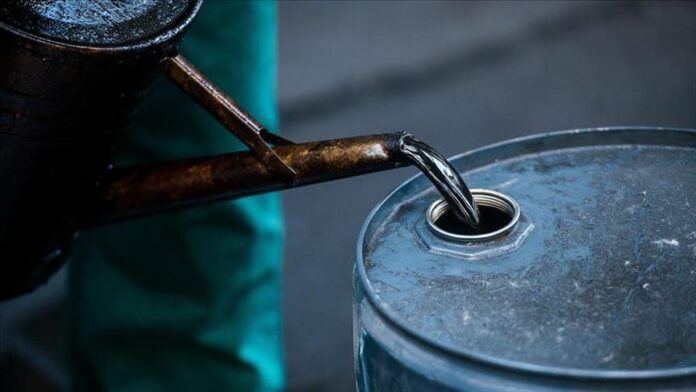LUANDA, Angola, February 21, 2022/ — Angola is sub-Saharan Africa´s second-largest oil and gas producer with a current production capacity of about 1.1 million barrels of oil per day (bpd) and 17,904.5 million cubic feet of natural gas.
The country’s oil and gas sector accounts for about one-third of its gross domestic product (GDP) and more than 90% of total exports.
Angola has 8.2 billion barrels of proven oil reserves and an estimated 13.5 trillion cubic feet (tcf) of natural gas reserves.
These impressive stats in terms of upstream potential are, however, yet to be replicated in the country’s midstream and downstream sectors.
The government has made it a priority, not just to harness its upstream potential, but also to focus on value creation across the entire value chain, with big investments planned in Angola’s mid-stream and downstream sectors.
Promoting Upstream Investments
In a bid to reverse the decline in production of recent years, the government has taken a number of aggressive steps to attract and facilitate new exploration in Angola. Firstly, the government created a separate regulator or concessionaire in 2018.
Dubbed the National Oil, Gas and Biofuels Agency (ANPG), this regulator has a set of specific roles: the implementation of government upstream policy under the supervision of the Ministry of Mineral Resources, Petroleum and Gas; the revaluation of Angola’s reserves and hydrocarbon potential; the promotion of bid rounds and exploration activity; as well the regulation of the sector.
Despite the challenges caused by the COVID-19 pandemic, the ANPG has, since 2019, organized a yearly bid to cede exploration acreage including onshore blocks, some of which have proven discoveries on them.
The Agency has also announced that it will also engage in direct negotiations with interested explorers in a bid to reduce red tape and promote seismic acquisition and exploration.
Natural gas is also expected to play a greater role in Angola’s hydrocarbon mix going forward. To that effect, the government in 2018 laid the foundation by passing Presidential Decree No. 7/18 to specifically regulate the exploration and production of natural gas.
Contrary to the past, where gas was only considered a by-product in the quest for oil, the Angolan regulator now seeks to promote gas not just for export and use in the production of oil, but also as a key component to feeding industries such as power generation, petrochemicals and agriculture, with the ultimate goal of driving diversification.
The new regulation allows for operators other than the national oil company Sonangol to explore and develop natural gas assets for both domestic and export markets in a speedy manner.
The cost of the development of natural gas projects has also been made significantly attractive, by decoupling them from the regimes that apply to oil projects. Petroleum production tax and petroleum income tax have all been halved for gas projects and can even be reduced further for discoveries below two tcf.
Given the importance of the sector to the entire Angolan economy, the government has also sought to gradually increase the participation of Angolans across the entire value chain, without losing its competitive edge vis-a-vis other countries. As the Angolan services sector grows in terms of technical competence, so has the opportunities for Angolan companies.
In other words, local content is a priority, as the government seeks to increase local participation to ensure that the industry benefits all Angolans. However, it is driven by sensible policies aimed at keeping Angola competitive as a destination for investment.
Mid- and Downstream Opportunities
Like many other major oil and gas producing countries across sub-Saharan Africa, Angola’s downstream sector has not seen the same degree of capital investment compared to the upstream market.
Despite Angola’s abundant hydrocarbon resources, there is a disproportionate 80% of refined petroleum products being imported from abroad to meet demand in strategic sectors such as transportation.
Accordingly, the government plans to address downstream inadequacies through the expansion of refining capacity via a number of key projects, offering opportunities for investment in Angola’s lucrative oil and gas market.
Despite delays caused by the impacts of the COVID-19 pandemic, Angolan authorities are advancing plans to construct three new refineries across three locations in the country. Namely, Soyo in northern Angola, in the exclave city of Cabinda and in the port city of Lobito. The Cabinda refinery project in Angola´s downstream sector is at an advanced stage with a capacity to process up to 60,000 bpd.
These developments will address the disproportionate importation of refined products and also seek to position Angola as a major exporter of refined products and associated petrochemicals in the sub-region.
Accordingly, there is an opportunity for international companies, some of which are already operating throughout Angola´s energy value chain, to work on new projects on their own or with state-owned Sonangol.
This way, international companies can take advantage of the unique opportunities both in Angola and in the sub-region, which includes major net importers of refined products like the Democratic Republic of Congo and Zambia.
In this regard, TotalEnergies has already invested $100 million in its partnership with Sonangol to further expand the country´s fuel distribution network by building 50 new service stations.
While Angola aims to complete the various refinery projects currently underway and create an attractive investment environment for new projects, the country also intends to progressively open up the downstream sector to serve as a catalyst to foster greater competition, stronger economic growth, and maximize the potential for new job creation as well as other socio-economic benefits.
These and many other opportunities are expected to be in the spotlight at this year’s edition of Angola Oil and Gas, scheduled to be held on 29,30 November and 1 December 2022.
Angola Oil and Gas 2022 is the official conference of the Ministry of Mineral Resources, Petroleum and Gas of Angola ministry and will bring together stakeholders from Angola’s oil and gas industry, as well as global investors and services companies interested in opportunities in Angola.








































